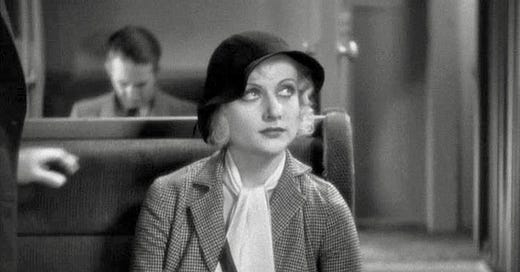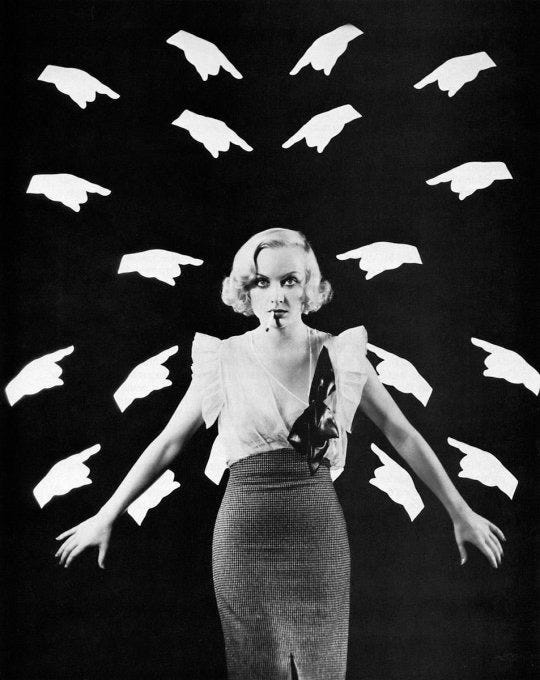Released by Columbia Pictures and directed by Edward Buzzell, 1932’s Virtue zeroes in on the personal struggles and moral dilemmas faced by Carole Lombard’s Mae—a prostitute who goes straight and then settles down with Jimmy, a taxi driver played by Pat O’Brien.
So… this isn’t ambiguous. There’s nothing subtle and there is no innuendo when describing Mae’s profession. In fact, the film opens with her being sentenced for solicitation. Instead of being sentenced to jail, the judge reprimands her and gives her a bus ticket to Danbury, Connecticut and a police escort to the bus station.
Currently, only the audio of this scene survives. When Virtue was re-released in theaters after 1934, Production Code restrictions required the removal of the courtroom scene, which explicitly described Mae’s profession. Although the film was later restored, only the audio track of this segment could be recovered—the visuals remain lost.
Mae is a true city girl with no intention of going to Danbury. As soon as she’s put on the bus, she slips right back off and hops into Pat O’Brien’s taxi. The two strike up a friendship that quickly blossoms into romance. Determined to turn her life around, Mae embraces the trappings of working-class respectability, making a conscious decision to leave her past behind. But just when she believes the door to her old life is firmly closed, the truth emerges—forcing Jimmy to reconcile two versions of his wife: the woman he knows and loves and the one who did what she had to in order to survive. After his initial shock, Jimmy insists he’s willing to forget Mae’s past—at least, that’s what he tells her…
Keep reading with a 7-day free trial
Subscribe to The Screen Spectator to keep reading this post and get 7 days of free access to the full post archives.






